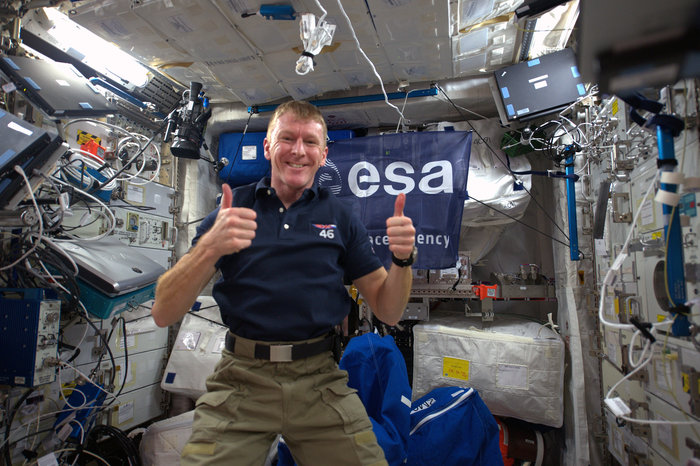
Trouble was, he’d called the wrong number.
It turns out the recipient of the call was Betty Barker, a 79-year-old Brit who was flabbergasted when she later learned the call had come from someone in space rather than an Earth-based prankster.
Recounting the story to the Mirror newspaper, Barker explained, “He just said, ‘Hello, is that planet Earth?’ So I just said ‘no,’ which I suppose is technically incorrect. I thought it was someone who’d been out down the pub.”
She added that because she heard “no giggling or noise from a pub,” she thought it could’ve been someone “looking to go to a nightclub called ‘Planet Earth’.”
Betty put the phone down before Peake had a chance to explain he was an astronaut calling from the ISS 200 miles above Earth (like she would’ve believed that, eh), leading him to post an apology via Twitter instead. “I’d like to apologise to the lady I just called by mistake saying ‘Hello, is this planet Earth?’ – not a prank call…just a wrong number!” Peake said in the tweet.
I’d like to apologise to the lady I just called by mistake saying ‘Hello, is this planet Earth?’ – not a prank call…just a wrong number!
— Tim Peake (@astro_timpeake) December 24, 2015
Betty, who lives in the same general area as Peake’s family in southern England, only learned about the true nature of the call the following morning when her husband spotted the story on the news.
“When I found out who it’d been I did feel a bit funny,” she told the Mirror, adding, “I was a bit abashed really, I felt a bit silly. I wish I’d thought of something witty to say at the time.”
Well, perhaps he’ll call her again on New Year’s Day to wish her all the best for 2016.
Tim Peake is the UK’s first publicly funded astronaut and the first Brit to visit the ISS. He arrived at the station in mid-December and has a series of experiments lined up during his six-month mission, including an endurance challenge where he’ll run the London marathon in real time as a virtual participant.
Besides Peake, the space station is currently home to five astronauts, among them American Scott Kelly (U.S.), currently Commander of the ISS.
Like the idea of seeing the station pass overhead? Then take a moment to sign up to NASA’s Spot the Station service, which’ll send you an alert ahead of its appearance in your part of the world.


